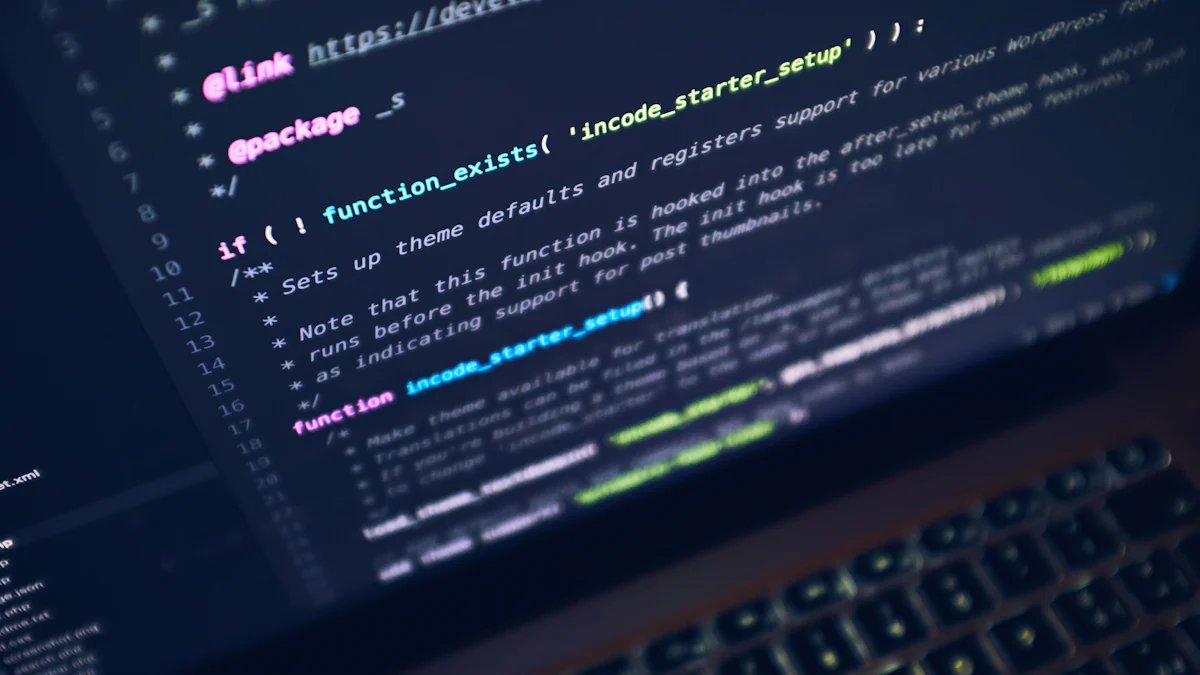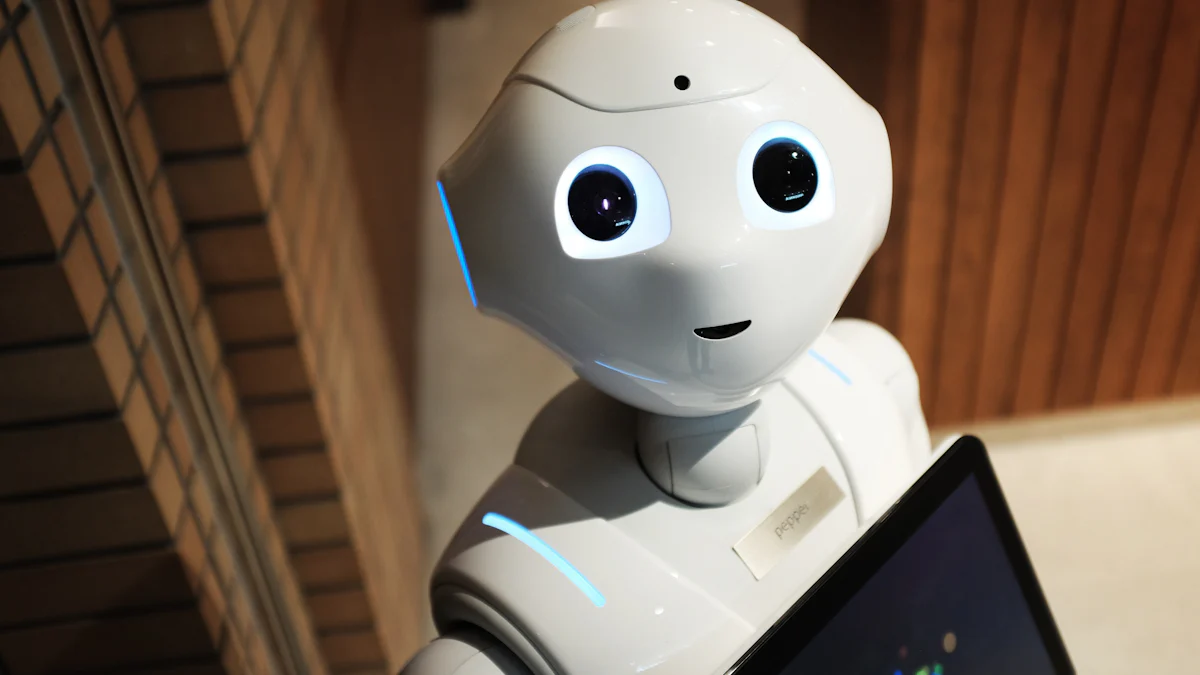Smart Hiring with AI: A Guide to AI Tools for Recruitment

AI recruitment software transforms how you hire by automating repetitive tasks, reducing bias, and enhancing the candidate experience. Imagine saving up to 86% of your hiring time while ensuring a fair process. AI evaluates candidates using consistent criteria, minimizing human bias. This technology not only streamlines your workload but also cuts costs by 30%. With AI tools for recruitment, you can focus on connecting with top talent, making your recruitment strategy more effective and inclusive.
Understanding AI Recruitment Tools
AI recruitment tools are revolutionizing the hiring landscape. These tools use artificial intelligence, natural language processing (NLP), and machine learning (ML) to automate and streamline various aspects of the hiring process. They help you source and screen candidates, analyze job application materials against job requirements, and speed up hiring decisions. By automating these tasks, AI tools for recruitment allow you to focus on strategic work like engaging top candidates and exploring new recruiting pipelines.
What Are AI Recruitment Tools?
AI recruitment tools are software solutions designed to enhance the efficiency and effectiveness of the hiring process. They automate repetitive tasks such as resume screening and interview scheduling. These tools provide data-driven insights that guide you toward making more informed decisions. By leveraging AI algorithms, they can automatically screen resumes and identify suitable candidates for specific roles. This technology also analyzes candidate data to predict job performance or assess cultural fit within your organization.
How Do AI Recruitment Tools Work?
AI recruitment tools operate by utilizing advanced algorithms to sift through vast amounts of data swiftly and accurately. They scan resumes, cover letters, and applications, identifying relevant keywords and qualifications. This process ensures that only the most qualified candidates reach your desk. Additionally, AI tools can offer predictive analysis capabilities, enhancing the quality of hires and reducing bias. They streamline the recruitment process by quickly scanning and parsing resumes, improving the quality of hires through standardized job matching, and boosting team productivity with custom workflows. Furthermore, AI-powered chatbots act as personal assistants, enhancing the candidate experience by facilitating communication and engagement.
Benefits of Using AI Tools for Recruitment

Increased Efficiency
AI tools for recruitment significantly boost your hiring efficiency. These tools automate repetitive tasks like resume screening and interview scheduling. You save valuable time and resources by letting AI handle these processes. Traditional recruiting methods often involve manual sorting through countless resumes, which can be time-consuming. In contrast, AI recruitment tools quickly sift through large volumes of data, identifying the most qualified candidates. This efficiency allows you to focus on more strategic tasks, such as engaging with top talent and refining your recruitment strategies.
Bias Reduction
One of the standout benefits of AI tools for recruitment is their ability to reduce bias. Human recruiters may unintentionally introduce bias into the hiring process. AI tools, however, evaluate candidates based on consistent criteria, minimizing the influence of unconscious bias. These tools can anonymize resumes, ensuring that decisions are made solely on qualifications and experience. By promoting a fairer hiring process, AI recruitment tools help you build more diverse and inclusive teams.
Enhanced Candidate Experience
AI tools for recruitment also enhance the candidate experience. They streamline communication and engagement through AI-powered chatbots, which provide timely responses to candidate inquiries. This immediate interaction keeps candidates informed and engaged throughout the hiring process. Additionally, AI tools offer predictive analytics that can match candidates to roles that align with their skills and career goals. This personalized approach not only improves the candidate experience but also increases the likelihood of successful hires.
Challenges of Implementing AI Tools for Recruitment
Implementing AI tools for recruitment can transform your hiring process, but it also presents several challenges. Understanding these challenges helps you navigate the complexities of AI integration effectively.
Data Privacy Concerns
Data privacy remains a significant concern when using AI in recruitment. AI tools handle vast amounts of sensitive candidate information, making compliance with data protection regulations crucial. You must ensure that your AI recruitment tools adhere to established laws like the General Data Protection Regulation (GDPR). Informing candidates about how their data will be used builds trust and transparency. Failure to comply with these regulations can lead to legal issues and damage your organization's reputation. Prioritizing data privacy not only protects your company but also enhances candidate trust.
Over-reliance on Technology
While AI tools for recruitment offer numerous benefits, relying too heavily on technology can pose risks. AI should complement, not replace, human judgment in the hiring process. Over-reliance on AI may lead to overlooking important human elements, such as cultural fit and interpersonal skills. It's essential to balance AI's capabilities with human intuition and experience. By doing so, you ensure that your recruitment process remains holistic and effective. Remember, AI serves as a tool to enhance your decision-making, not as a substitute for it.
Integration with Existing Systems
You need to ensure that AI tools seamlessly integrate with your applicant tracking systems and other HR technologies.
Types of AI Tools for Recruitment

AI tools for recruitment have transformed the hiring landscape by automating various tasks and enhancing the overall recruitment process. Let's explore some of the key types of AI tools that can significantly improve your recruitment efforts.
Resume Screening Software
Resume screening software is a powerful tool that automates the initial stages of candidate evaluation. This software scans resumes, cover letters, and applications to identify relevant keywords and qualifications. By doing so, it quickly presents the most qualified candidates to you, saving valuable time and effort. With AI recruitment tools, you can efficiently sift through large volumes of applications, ensuring that only the best-suited candidates reach your desk. This automation not only speeds up the hiring process but also allows you to focus on engaging with potential hires and making informed decisions.
Chatbots for Candidate Engagement
Chatbots have become an essential component of modern recruitment strategies. These AI-powered tools facilitate communication and engagement with candidates throughout the hiring process. Chatbots provide timely responses to candidate inquiries, keeping them informed and engaged. They can also schedule interviews, answer frequently asked questions, and provide updates on application status. By using chatbots, you enhance the candidate experience, ensuring that candidates feel valued and informed. This improved engagement can lead to higher candidate satisfaction and a more positive perception of your organization.
Predictive Analytics Tools
Predictive analytics tools leverage data to forecast the future performance of candidates. These tools analyze candidate data to predict job success and assess cultural fit within your organization. By using predictive analytics, you can make more informed hiring decisions, reducing the risk of bad hires. These tools provide insights into candidate profiles, helping you identify top talent that aligns with your organization's goals and values. Predictive analytics tools enhance the quality of hires, ensuring that you select candidates who are likely to thrive in their roles.
Key Features to Look for in AI Recruitment Software
When selecting AI recruitment software, you should focus on several key features that enhance the hiring process. These features ensure that the software meets your organization's needs and maximizes the benefits of AI tools for recruitment.
User-Friendly Interface
A user-friendly interface is crucial for any AI recruitment software. You want a platform that is intuitive and easy to navigate. This simplicity allows your team to quickly adapt to the software without extensive training. A clear and organized layout helps you access essential features and data effortlessly. When the interface is user-friendly, it reduces the learning curve and increases productivity. Your team can focus on strategic tasks rather than struggling with complex software navigation.
Customization Options
Customization options are vital for tailoring the software to your specific recruitment needs. Every organization has unique hiring processes and requirements. AI recruitment software should offer flexibility to adjust workflows, criteria, and settings. Customization allows you to align the software with your recruitment strategies and goals. You can modify features to suit different roles or departments, ensuring that the software supports your organization's diverse needs. This adaptability enhances the effectiveness of AI tools for recruitment, making them a valuable asset in your hiring process.
Robust Data Security Measures
Data security is a top priority when using AI recruitment software. The software handles sensitive candidate information, so robust security measures are essential. You must ensure that the software complies with data protection regulations like the General Data Protection Regulation (GDPR). Look for features such as encryption, secure data storage, and access controls. These measures protect candidate data from unauthorized access and breaches. Prioritizing data security not only safeguards your organization but also builds trust with candidates. They feel confident that their information is handled responsibly and securely.
Best Practices for Implementing AI Tools in Recruitment
Implementing AI tools for recruitment can revolutionize your hiring process. However, to maximize their potential, you should follow best practices that ensure smooth integration and effective use.
Training and Support for HR Teams
Training your HR team is crucial when introducing AI tools for recruitment. You need to provide comprehensive training sessions that cover the functionalities and benefits of these tools. This training helps your team understand how to use AI tools effectively, ensuring they can leverage the technology to its fullest potential. Additionally, ongoing support is essential. Establish a support system where team members can seek assistance and share insights. This approach fosters a collaborative environment, encouraging your team to embrace AI tools confidently.
Continuous Monitoring and Evaluation
Regular monitoring and evaluation of AI tools for recruitment are vital. You should continuously assess the performance of these tools to ensure they meet your recruitment goals. Set up metrics to measure their effectiveness, such as time saved in the hiring process or the quality of candidates selected. By evaluating these metrics, you can identify areas for improvement and make necessary adjustments. Continuous monitoring also helps you stay updated with the latest advancements in AI technology, allowing you to adapt and enhance your recruitment strategies accordingly.
Aligning AI Tools with Recruitment Goals
Aligning AI tools with your recruitment goals is essential for success. You must clearly define your recruitment objectives and ensure that the AI tools you implement support these goals. For instance, if your aim is to reduce bias in hiring, choose AI tools that anonymize resumes and evaluate candidates based on objective criteria. Additionally, some AI tools enable you to conduct video interviews, analyzing candidates' reactions, voice tones, and facial expressions. This feature can help you assess cultural fit and interpersonal skills, aligning with your goal of selecting candidates who match your organization's values. By aligning AI tools with your recruitment goals, you create a cohesive strategy that enhances your hiring process.
AI tools for recruitment have the potential to transform your hiring processes by enhancing efficiency and reducing bias. To integrate these tools effectively, start by identifying your recruitment goals and selecting AI solutions that align with them. Train your HR team to use these tools and continuously monitor their performance. As AI technology evolves, expect trends like improved predictive analytics and more personalized candidate experiences. However, remember to balance AI with human judgment to maintain fairness and integrity in hiring. By doing so, you can harness AI's benefits while upholding ethical standards.
See Also
Revolutionizing Hiring Efficiency With AI Recruitment Solutions
Harnessing AI Recruitment Tools For Accurate Candidate Predictions
Elevate Your Hiring Strategy Using MokaHR's AI Solutions
Achieving Recruitment Excellence Through MokaHR's AI Innovations
Enhancing Interviews With Smart AI Hiring Software Solutions
From recruiting candidates to onboarding new team members, MokaHR gives your company everything you need to be great at hiring.
Subscribe for more information

